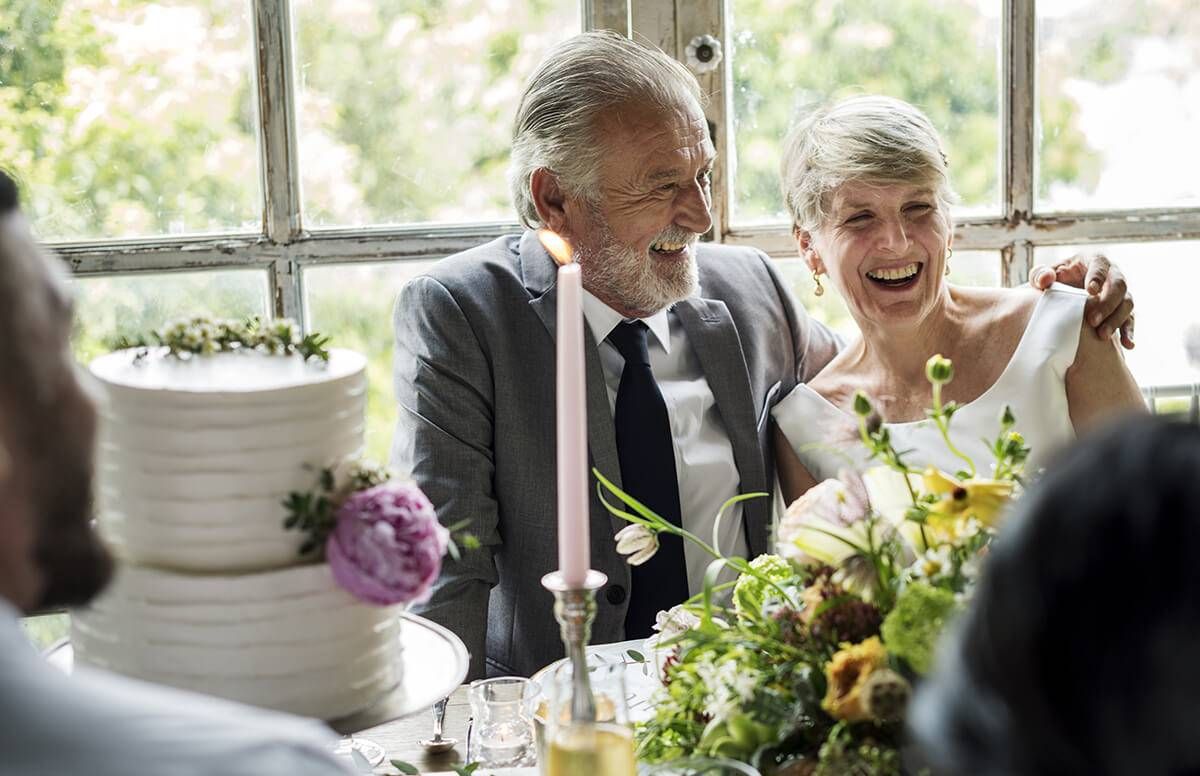After Loss, A Father's Remarriage Brings Happiness
A reflection on how the power of love was reaffirmed
After less than a year as a widower, my then 72-year-old father Al decided, on occasion, to change the radio station to something other than 24-hour news, to close the bedroom window (at least halfway) on chilly nights and to sometimes, without protest, put on a sport jacket for dinner. In other words, he remarried.

My mother died on October 3, 1986, and by Thanksgiving of that year, my dad was having dinner with a new woman. Relatives tsk-tsk'ed…old friends were aggrieved. My father paid them no mind.
My sister Karen and I were thrilled. We heard remarks like, “Don’t worry, he’ll never forget your mother.” As if he ever could. Some thought it supportive to say, "It’s too soon. I know how hard this is for you,” so over-the-top sympathetically that it rendered nonexistent any good coming from this match.
Blessed by prenuptial agreements, their union reaffirmed their decision to write a new chapter in what had proven to be a completely unpredictable journey.
Some months later, my sister and I attended the wedding in Hollywood, Fla., watching the newlyweds commit to surviving the rest of their lives in secure, comfortable companionship. Many guests were couples who had remarried within the past 10 years. They came together in their unions complete with children and grandchildren, assorted in-laws and friends from the old neighborhood. They brought clothes picked out by former spouses, old photos of family vacations and sentimental keepsakes of their previous lives.
Writing a New Chapter
Without the stress of having to “make it,” my father and his wife were free to enjoy the quiet breakfast denied in earlier, more hectic decades. The naiveté of first love was replaced by a healthy respect for the virtues of being needed. Blessed by prenuptial agreements, their union reaffirmed their decision to write a new chapter in what had proven to be a completely unpredictable journey.
A neighbor took us aside to say “only those from happy marriages remarry so quickly,” telling us what we knew to be true and wanted acknowledged. We laughed as we listened to the men make the same juvenile jokes they made in their youth about being “trapped” and “biting the dust.”
But we noticed the smile on our father’s face when one of his cronies spilled wine on the tablecloth and, after a split second’s panic, Dad remembered he didn’t have to solve the problem alone. “I have a wife now,” he smiled. “Neysa will figure out how to get it out.”
We and the bride’s children forgave our brand-new stepparent anything, but came down hard on our own parent. We said, “Dad, stop being obnoxious, put down that cigar, stop teasing her” and they said, “Mom, don’t be so bossy, stop giving orders, leave him alone.”
The tough moments, such as watching them hold hands or realizing Neysa might actually do some things better than my mother, were overshadowed by the knowledge that our sense of loss was a separate issue, and there could be nothing wrong with seeing our father happy again.
A Meaningful Piece of Clothing
Just as the Justice of the Peace was to begin the wedding ceremony, the bride’s sister, recently out of the hospital, felt chilled and asked Neysa if she had something to put over her shoulders. Neysa raced through my father’s apartment, opening closets to find something suitable. She came back a few minutes later with a soft light blue cardigan and asked those assembled who it belonged to, and if her sister could borrow it. Out of everything in all the closets, she chose the one piece of my mother’s clothing that I had saved.
“That’s fine,” I answered, “put it on.”
After the initial shock of seeing Neysa holding that achingly familiar sweater, still carrying my mother’s scent, a strange calm came over me. How perfect, I thought: My mom’s here too. She came to remind us that she, more than anyone, was grateful someone would watch over her man.
She came to reassure us that as her children, being positive about this marriage had nothing to do with being disloyal to her. And she came to reaffirm what I’ve always believed — that the invincible power of love in its purest and most unselfish state, can never be overestimated.

